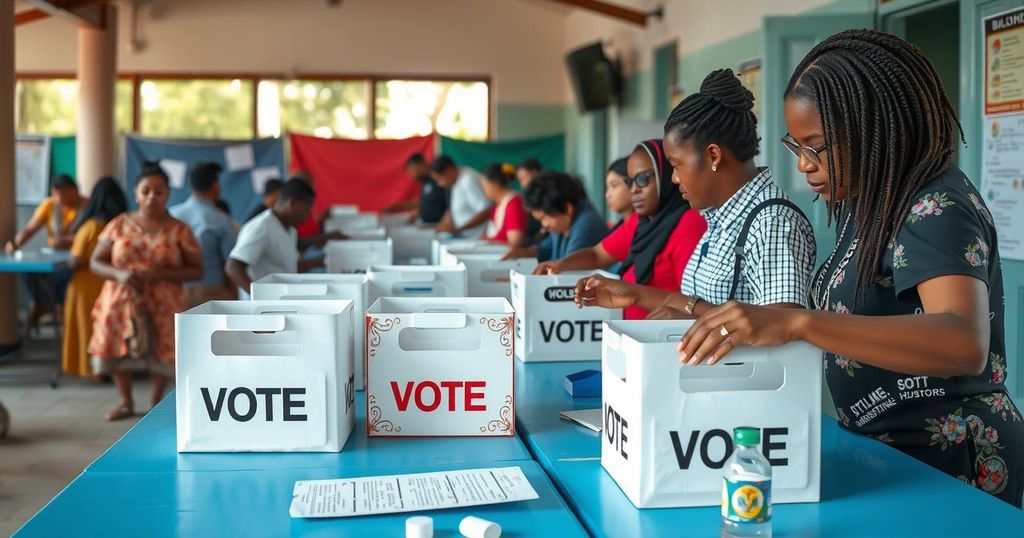Comoros Voters Head to Polls for Parliamentary Elections Amidst Controversy

Voters in Comoros are electing members of the 33-seat parliament amidst accusations of electoral violations from the last presidential election. President Azali Assoumani faces criticism for authoritarian practices and possibly preparing his son for succession. Nearly 100 candidates are running, with some opposition parties calling for a boycott, while others participate to expose systemic flaws. Results are to be announced soon.
Voters in Comoros are participating in parliamentary elections to fill the 33-seat legislature, following a contentious presidential election last year in which President Azali Assoumani was re-elected amid accusations of widespread election irregularities. The ruling party has denied these claims, and polling stations opened early on Sunday for an electorate of approximately 338,000 registered voters. This marks the first parliamentary election since January 2020, and nearly 100 candidates are contesting the elections, selected by the Supreme Court.
President Assoumani, who has been in power since 1999 following a coup, is accused by opponents of authoritarian tendencies and of potentially grooming his eldest son, Nour El-Fath, to succeed him in 2029. In an indication of this succession plan, Assoumani granted his son significant powers in 2024 to oversee all government affairs. While some opposition factions, particularly the Juwa party led by former President Ahmed Abdallah Sambi, have advocated for a boycott of the elections due to perceived electoral injustices, others have opted to participate as a means to highlight the flaws in the current regime.
“The Azali regime is weakened … by participating in these elections we are contributing to further exposing the flaws in its system and accelerating its inevitable fall,” stated Hamidou Karihila, a candidate for the opposition Hope of the Comoros party. Results from the election are anticipated by Friday.
The political landscape in Comoros has been marked by a cycle of instability and allegations of electoral malpractice. Since his initial rise to power via a coup in 1999, President Azali Assoumani has faced criticism from opposition groups for his authoritarian governance style and growing nepotism, particularly concerning the increasing role of his son in government matters. The current elections are crucial, as they not only determine the composition of the parliament but also reflect the ongoing tensions between the ruling party and various opposition factions, some of which argue that participation in a flawed electoral system only legitimizes the government’s authority.
The parliamentary elections in Comoros will significantly impact the nation’s political dynamics, as various factions vie for influence amidst allegations of authoritarianism under President Assoumani’s regime. With the opposition divided over whether to participate or boycott the elections, the outcomes will likely shape both short-term governance and the prospect of future leadership changes as the potential for succession looms. Results are expected to be announced shortly, indicating the public’s sentiment amidst these challenges.
Original Source: www.canberratimes.com.au







